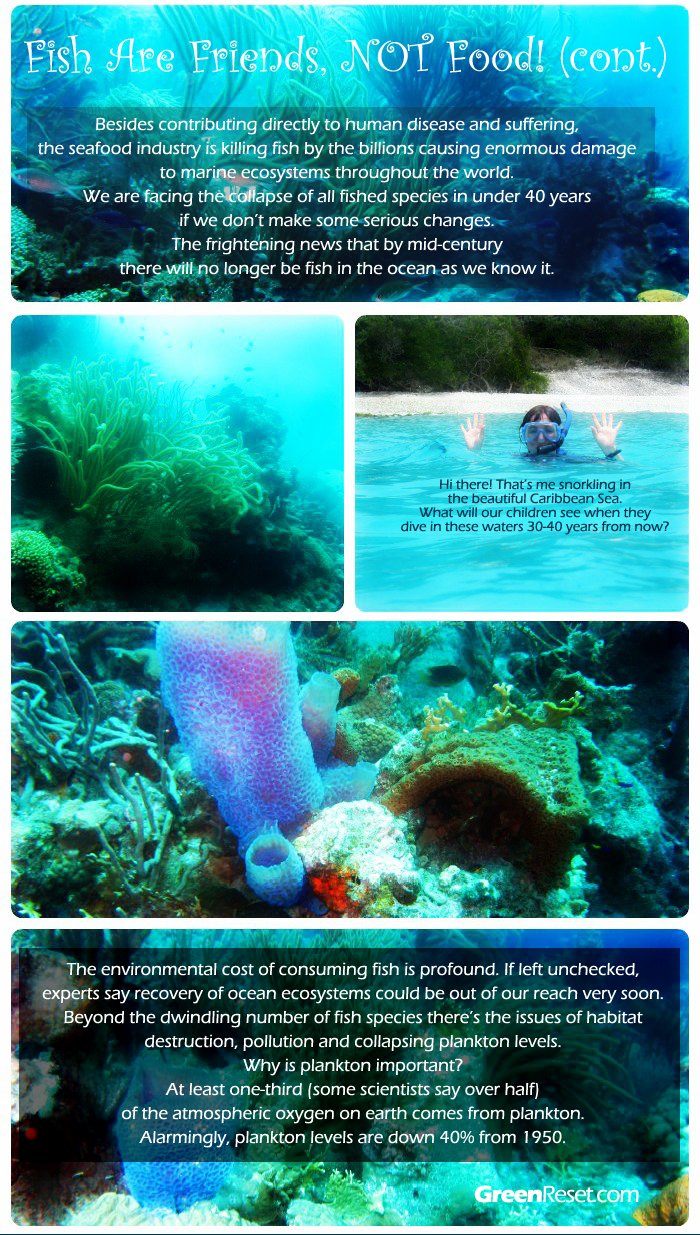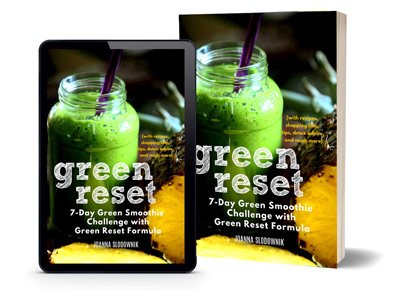Eating fish may be a considered by many a vast improvement over the Standard American diet (SAD), but most people fail to realize that the consumption of aquatic animals comes with its own set of issues.
Truth is the promise of fish-eating being healthier, more sustainable, better for the environment and more ethical than the consumption of land animals is nothing more than a “fishy” propaganda.
Besides contributing directly to human disease through the toxicity of its products, the seafood industry is killing fish by the billions causing enormous damage to marine ecosystems throughout the world.
We are facing the collapse of all fished species in under 40 years if we don’t make some serious changes. The frightening news that by mid-century there will no longer be fish in the ocean as we know it.
Since the mid-1980s, the international fishing industry’s capacity has increased every year, and yet over the same period, the amount of fish actually caught and killed for food has decreased every year.
The reason is obvious: we have overfished the oceans to such an extreme extent that we have forced all the world’s fisheries into collapse or near collapse. Overfishing of large fish like tuna, cod, swordfish, and salmon, as well as mid-sized fish and small sea animals like shrimp and krill, is having devastating consequences on marine ecology, and driving many aquatic animals into extinction and near-extinction.

What about “Sustainable” Fisheries? Is “Sustainable Fishing” an Answer?
Over the past few years, “sustainable fishing” has become a buzzword and the fishing industry.
While it may be considered a step in the right direction in terms of rectifying the damage to marine ecosystems, it’s hardly a solution to the problem. The question remains: Can “sustainable fishing” exist for a population of over seven billion people?
Considering that the global fishing intake is estimated to be 2.5 times what fish populations could feasibly support, it’s obvious the only truly sustainable way to buy seafood is not to buy it at all.
No large-scale fishing operation can truly be “environmentally friendly.” They put profit above the health of our oceans. Besides, the “smart seafood” diet, also has its limitations. It is tricky to figure out how your fish has been caught; and it’s just difficult to follow this type of selective eating. It has the potential of transforming a person into an irritating dinner guest, along the lines of “Yes, dear hosts, I do love salmon – but only wild Alaskan salmon, please, because I don’t eat other types.”
It is so much simpler to cut fish out altogether. You may be surprised, but people who make that choice feel no particular deprivation. The black and white, yes-or-no categories can make things a great deal easier. And much more sustainable.
Read The Whole Ebook: Truth About Eating Fish and Fish Oil
You may be rolling your eyes at another “truth” being exposed, but I challenge you to read my new ebook and tell me you did not learn something new.
Download the ebook on Amazon (coming soon)
“Exposed: The Truth About Eating Fish What Your Doctor Never Told You About Eating Fish & Fish Oil Supplements”
Questions? Comments? Suggestions?
If you have a favorite recipe, why not submit it here in the comment section of this smoothie recipes blog for others to enjoy too!
I also welcome any comments, questions and suggestions. Thanks!



people living in landlocked places do not have a connection with the oceans and therefore mostly ignoring the issues concerned with it. But they are also being affected with the overall effect of environment degradation. Fish is eaten in all these places and is very costly, so mostly the rich consume it in luxury hotels. Poor consume only the river and pond fish. Many livelihoods in poor countries depend on it in rural areas. Alternatives will be needed .